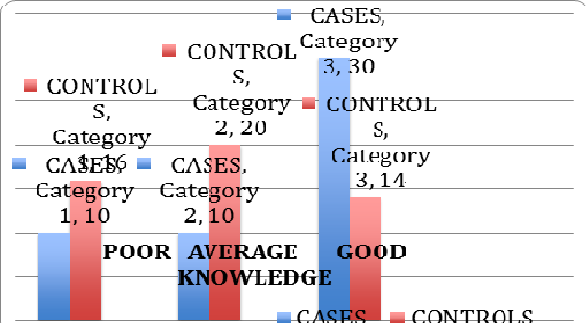
Shruti Kakar
SS Institute of Medical Sciences & Research, India
Title: KNOWLEDGE, ATTITUDE AND PRACTICE STUDY ON ACNE IN A TERTIARY CARE HOSPITAL IN SOUTH INDIA
Biography
Biography: Shruti Kakar
Abstract
Statement of the Problem: Acne is a chronic inflammatory disease of pilosebaceous glands. It is known to occur in adolescent age group suggesting a hormonal influence1. Recent studies have also implicated the role of diet in the pathogenesis of acne2. Although a common disease, it is a known cause of distress and depression if left untreated. Since it has a multifactorial causation, the knowledge , attitude and practices regarding acne hold a major significance in the etiopathogenesis and outcomes of acne patients. Our study was conducted to peek into the psyche of indian patients regarding acne and thus trying to improve the compliance and practices regarding acne.
Methodology & theoretical orientation:
The study was conducted between January 2016 to April 2016 in Skin OPD of SS Institute of Medical Sciences And Research Centre, Davanagere, Karnataka. 50 patients having acne lesions with 50 age and sex matched controls were taken for the study.
Findings:
Most of the cases were between 15-24 years of age( 73.33%). Majority were females(53.33%). The study showed that 60% of cases and 26.66% controls had good knowledge about acne. 65.21% questions were answered correctly by cases and 47.92% questions were answered correctly by controls. 60% cases and 56.66% controls had favourable attitude towards acne. The correlation between knowledge and attitude was highly significant among cases( p value 0.001) whereas, it was significant in controls( p value 0.018).
Conclusion & Significance:
Acne is one of the most common disorder not just among adolescents but is increasingly seen in older age group also. Despite being so common and very well responsive to treatment, it is a major cause of depression among patients. Many myths exist among patients. People believe in taking traditional medication and wait for spontaneous resolution leading to permanent scarring, when it could have been managed so well. As we observe in the study that knowledge, practice and attitude go hand in hand, thus improving the knowledge of public would improve the management and outcome of acne.

Recent Publications:
- Adityan B, Thappa DM. Profile of acne vulgaris-A hospital-based study from South India. Indian J Dermatol Venereol Leprol 2009;75:272-8
- Smith R N, Mann N J, Braue A, Makelainen H, Varigos G A. A low-glycemic-load diet improves symptoms in acne vulgaris patients: a randomized controlled trial. Am J Clin Nutr 2007;86: 107-15
- Plewig G, Jansen T. Seborrheic dermatitis. In: Wolff K, Goldsmith LA, Katz SI, Gilchrest BA, Paller AS, 
Leffell DJ, editors. Fitzpatrick's Dermatology in General medicine, 7 th edn., New York: McGraw Hill 
Publishing; 2008. 219-25 

- Clarke S, Nelson A, George R, et al. Pharmacologic modulation of sebaceous gland activity: Mechanisms and clinical applications. Dermatol Clin. 2007;25:137–146
- Shaw J. Acne: Effects on hormones on pathogenesis and management. Am J Cordain L, Eades M, Eades M. Hyperinsulinemic diseases of civiliza- 
tion: more than just Syndrome X. Comp Biochem Physiol 2003;136: 
95–112 

- Franks S. Polycystic ovary syndrome. N Engl J Med 2003;13:853– 61

